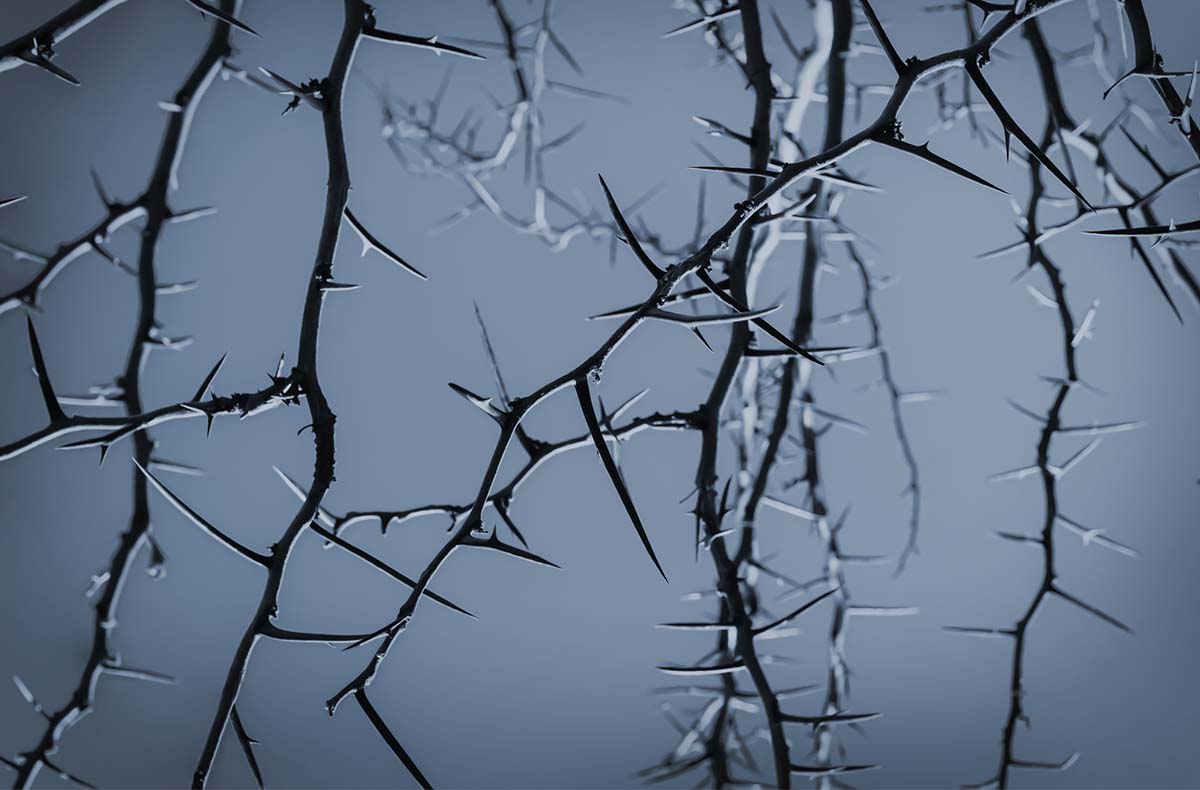
There’s something oddly satisfying about gardening. Not the kind where you plant a speck of seed and impatiently water it until a reluctant sprout finally pokes its head out.
I’m talking about staring down a patch of land, overgrown with unwanted weeds and unearthing the beauty waiting to be released from the strangling grip of nature’s hoodlums. Michelangelo chipped away at everything that wasn’t a ceiling and painted a beautiful fresco in the Sistine Chapel.
I too, snip, tug and chisel away at everything that isn’t a glorious garden of greenscape. Well-earned sweat rolls down my face. My muscles strain in a tug-of-war competition with Mother Nature herself.
Our war rope is a prickly, deep-rooted vine. Our battle is equal parts strength and will. Mother Nature’s grip on the tether is strong… as is mine.
I grip the vine gingerly because Mother Nature sways the competition with thorns.
I am forced to rely on the weak strength of a thumb and finger grip. Thumb-finger by thumb-finger, I am able to inch myself along the vine closer to the ground, puncture-free.
Finally, I reach the earth, disturbed by the few tugs I’ve made. My gardening shovel roots beneath the surface. With enough loosened dirt, I’m able to see into the vine’s foxhole.
Well, well, well, Mother Nature, what have we here? The root of the vine, unblemished by the protective armor of thorns.
Able to grip the smooth vine with the full strength of my entire hand, I win the battle against Mother Nature. I hoist the sprawling root high above my head like the severed war trophy it is. I throw the defeated vine on the ground with great aplomb.
Strewn amongst other vines that met a similar fate, I can see the gradual transition from delicate subterranean growth to thick vegetation with prickly, piercing spikes.
Each vine reveals a chronological timeline of its life.
It starts its life in purity. A tender shoot, bursting forth, untouched, innocent, vulnerable and trusting. It is un-nurtured, yet also untainted.
An examination of my terrain excavation shows the gradual buildup of the sharp callouses. A response to the vine’s encounters with the complexities of earthly experiences. Environmental challenges of harsh weather, competition with other plants and being low-vine on the food chain are balanced with environmental embraces of hydration, sunlight and nourishment.
The plants develop thorns as a mechanical defense against external threats (like being a herb in the herbivory food store).
Shoot, before I get hung out on the vine; if you’re a botanist (professional or practicing), let’s acknowledge the colocasia in the room. I realize a thorn is not a spine is not a prickle. For the sake of simplicity, I’m referring to thorns as anything anatomically sharp on a plant that causes an expletive to bloom forth from your mouth.
Those anatomically sharp things can sometimes (wilt your stem botanist, I said “sometimes”) be a source of water conservation or shade provision. Bottom line: Those imposing and uninviting thorns have a purpose borne out of defensive necessity.
It makes me think about my personal journey.
I’m not sure how pure my life started, but I did start as a tender shoot. As I stretched my vines, I encountered intersections of beauty and adversity. Setbacks, betrayals and heartaches created soul-scarring wounds. In response, I sprouted emotional thorns to protect myself from anyone or anything out to cause me harm.
And in the garden of life, I’m not the only thorny plant.
We’ve all come across bristling buds of biting blossoms. We’ve been pricked by the thorns of others. The sharp guardians shaped by their life’s circumstances. Those thorns may look like cynicism, hostility, guardedness or emotional barriers, but they serve as shields against further pain. Each thorn represents a wound, an experience, or a loss that has shaped their perception of the garden, gardeners and animals around them. Their thorns are a testament to the struggles they have endured and the wisdom they’ve gained from adversity. Their thorns are part of the story of their journey.
Looking back at my own life’s landscape, I realize that tending to it involves maintaining a constant awareness of and fight against an overgrowth of emotional thorns. Those are the penetrating weeds that hinder my personal potential and productive vulnerability. They hold the power to harshly strangle authentic connection with those around me.
So when we run into others who come at us with thorns prickling, remember that the painful plant spears you fight in the garden weren’t always there. That person, like the plant, once had a tender vulnerability beneath those piercing claws. (Admittedly, with some, it is deep within. And for others, it’s really deep.)
Those thorns are defense mechanisms borne out of their experiences. Look at those thorny exteriors as remnants of battles fought and lessons learned.
We’re all products of our environments, navigating the thorny landscapes of our lives. Tend to your community garden with empathy, support, compassion, patience and understanding.
The thorns you encounter weren’t always there. That vine you’re fighting isn’t the only one causing pain with the very mechanism it developed to prevent its pain.
You have thorns. Others have thorns. Be aware of the thorns and know that they are there for a reason—and don’t judge a plant by those thorns.
As I trowel off the sweat of hard work and personal discovery, know that I dig you, and think you’re a sheer joy—weeds, thorns, and all.



